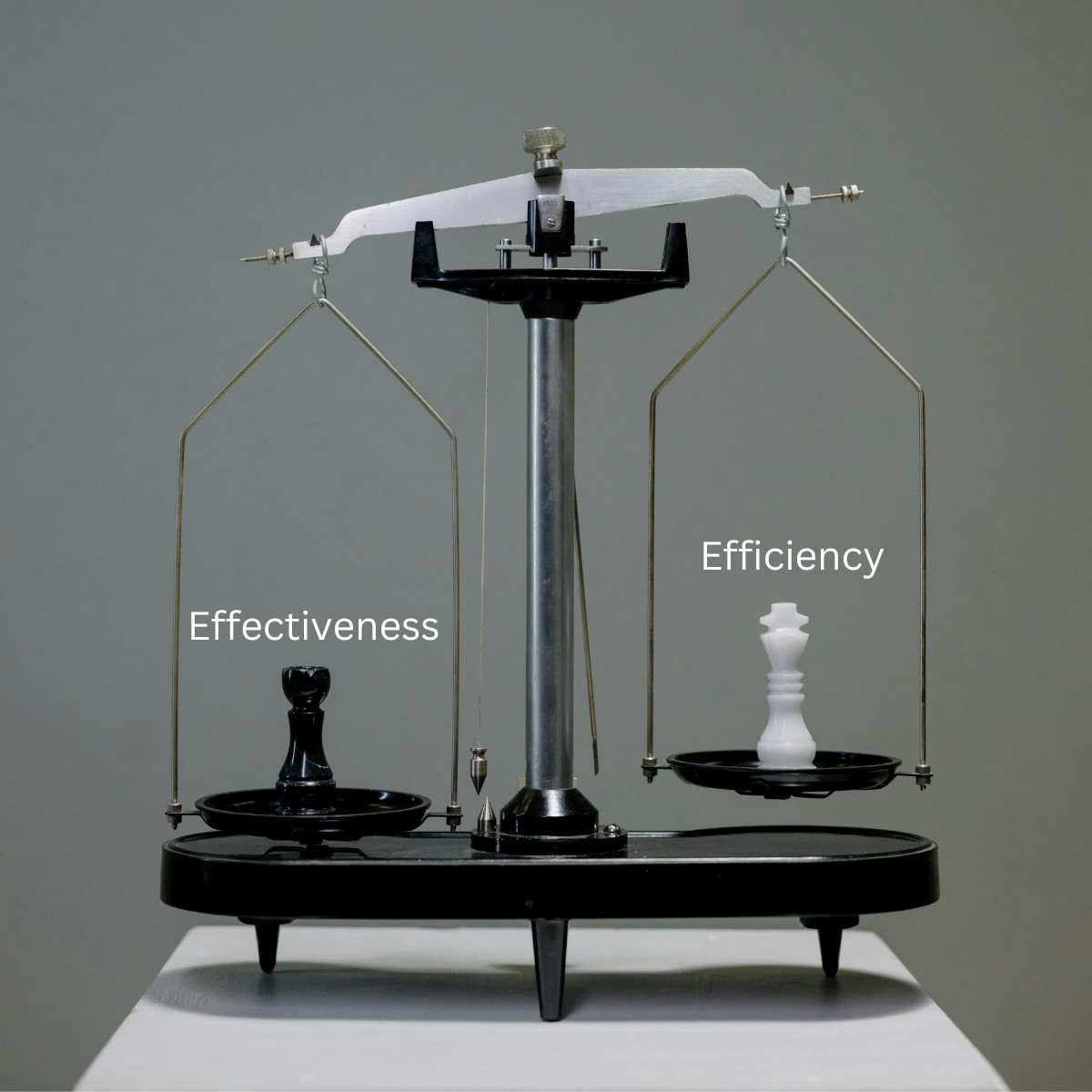Common Misconceptions About Efficiency vs. Effectiveness
Many businesses fall into the trap of focusing solely on efficiency, equating speed and low costs with success. However, efficiency without a clear purpose can lead to wasted effort. In fact, 61% of employees believe their time at work is spent inefficiently. This often happens when teams are not aligned with the company’s strategic goals. Shockingly, only 7% of employees fully understand their company’s business strategies. If employees don't know how their work contributes to overall objectives, even the most efficient processes won’t lead to desired outcomes.
Strategies for Being Effective Over Just Efficient
1. Align Actions with Business Goals:
To be effective, employees need to understand what the company is trying to achieve. Communication plays a key role here. Companies with effective internal communication programs are 3.5 times more likely to outperform their peers. When teams know the “why” behind their tasks, they can prioritize effectively, ensuring that efficiency doesn’t come at the cost of effectiveness.
2. Foster Collaboration and Communication:
A siloed workplace where teams operate independently may seem efficient in the short term, but it often leads to long-term inefficiencies and missed opportunities. 86% of employees and executives cite poor collaboration and communication as a cause of workplace failures. Improving cross-department communication ensures that everyone is pulling in the same direction, optimizing both efficiency and effectiveness.
3. Measure What Matters:
Being effective means measuring success not just by how quickly tasks are completed but by the impact they have. Companies that effectively communicate and execute strategies outperform their peers by 270% in market value. Instead of focusing purely on metrics like time or cost, incorporate KPIs that track progress toward strategic goals.
How HubSpot CRM Helps Balance Efficiency and Effectiveness
Achieving both efficiency and effectiveness requires the right tools, and HubSpot CRM is designed to help businesses do just that. It not only streamlines processes but also aligns them with strategic goals.
- Increased Lead Conversions: HubSpot CRM users report a 52% increase in lead conversion rates, showing how the tool boosts effectiveness by helping sales teams focus on the right prospects.
- Improved Sales Productivity: The CRM’s task management system has been shown to increase sales productivity by up to 30%, making it easier for teams to manage their time efficiently while still driving results.
- Enhanced Marketing Automation: Businesses using HubSpot’s marketing automation tools have seen a 451% increase in qualified leads, which translates into more effective targeting and outreach.
By using HubSpot CRM, businesses can maintain a balance between efficiency (automating tasks, saving time) and effectiveness (focusing efforts on high-impact areas that align with business goals).
Conclusion
While efficiency is important, it doesn’t guarantee success unless paired with effectiveness. Businesses need to focus not just on doing things quickly, but on doing the right things to achieve their goals. By fostering communication, aligning actions with strategic objectives, and leveraging tools like HubSpot CRM, companies can strike the perfect balance between efficiency and effectiveness, driving sustainable growth and long-term success.




